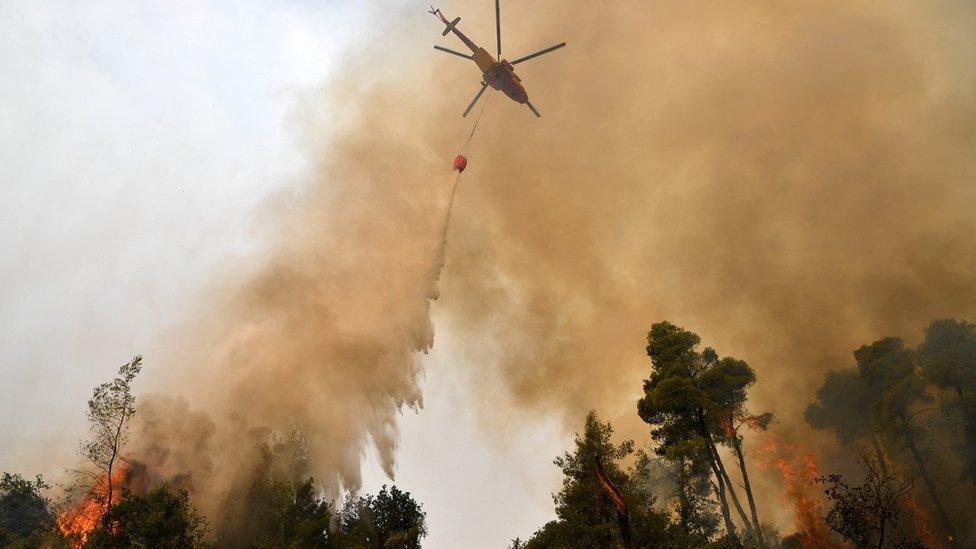Greek schools close because of 'historic' heatwave
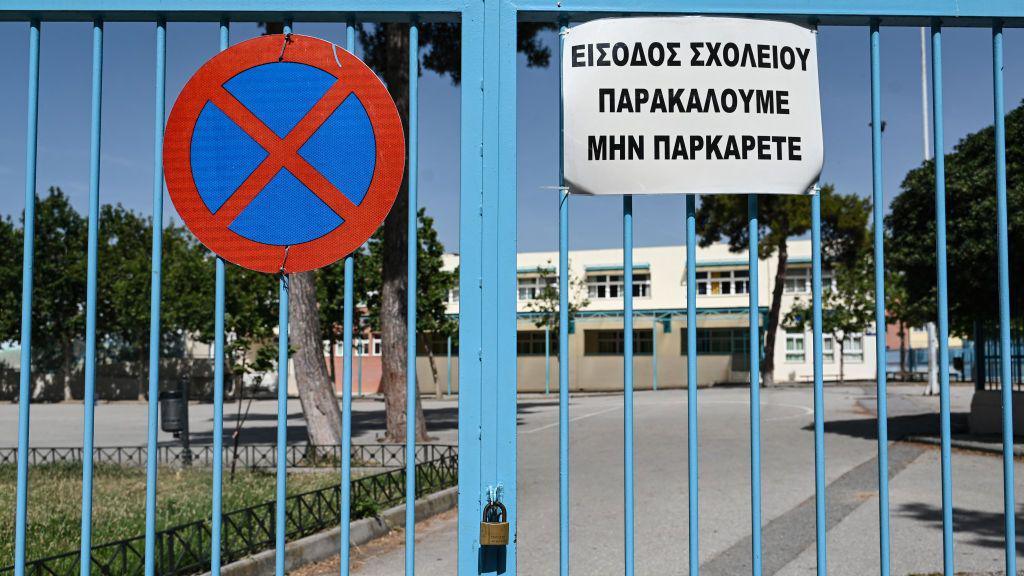
Schools have had to close in Greece due to high temperatures
- Published
Lots of schools in Greece have shut as the country experiences its first heatwave of the summer.
Temperatures were predicted to reach up to a sweltering 43C this week.
Schools and nurseries were closed to protect students.
Some famous tourist sites have also been shut to the public for the second day in a row, including the ancient Acropolis in the capital Athens, which is a key landmark attracting thousands of visitors every day.
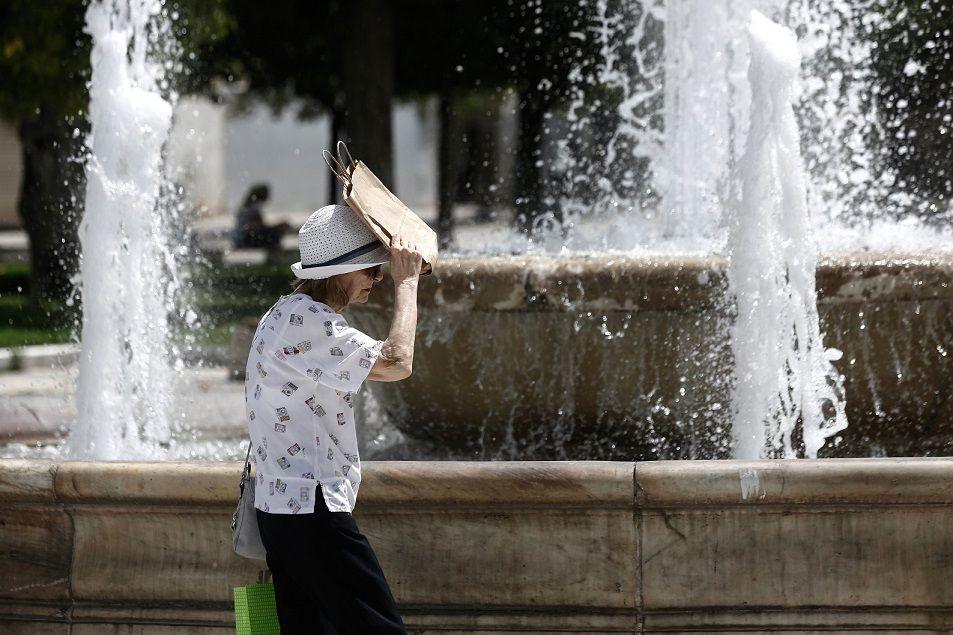
Elderly people have been protecting themselves from the heat
Tourists and locals in Greece have been taking action to try and keep cool this week, relying on air conditioning, hand held fans and water fountains.
Elderly people have been protecting themselves in special air-conditioned rooms.
Greece's Red Cross also said it had handed out around 12,000 bottles of water in the centre of the capital and at the Acropolis on Wednesday.
The country's labour ministry advised that people who work outdoors work from home if they can during the heatwave.
People have also been advised to take precautions when it comes to where they go, how often they go out, how they dress, what they eat and what activities they do during the hot weather.
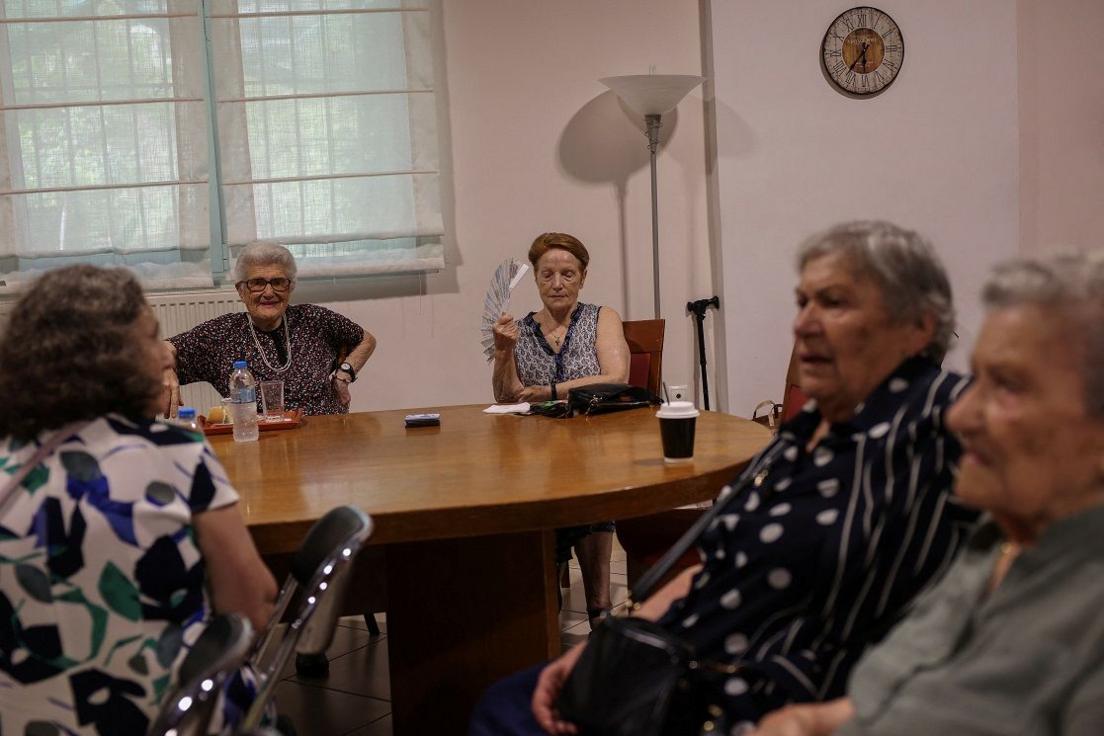
Cooling centres have been set up for the elderly
In the Greek city of Thessaloniki, teachers and pupils said annual school exams were held under difficult conditions earlier this week.
"There was no air-conditioning in any of the rooms so we used fans, some of which the teachers brought from their own homes," said Andreas Karagiannis, a 52-year-old mathematician and examiner.
"Exams should not have been held under these conditions," said one 17-year-old pupil.
What's causing the heatwave?
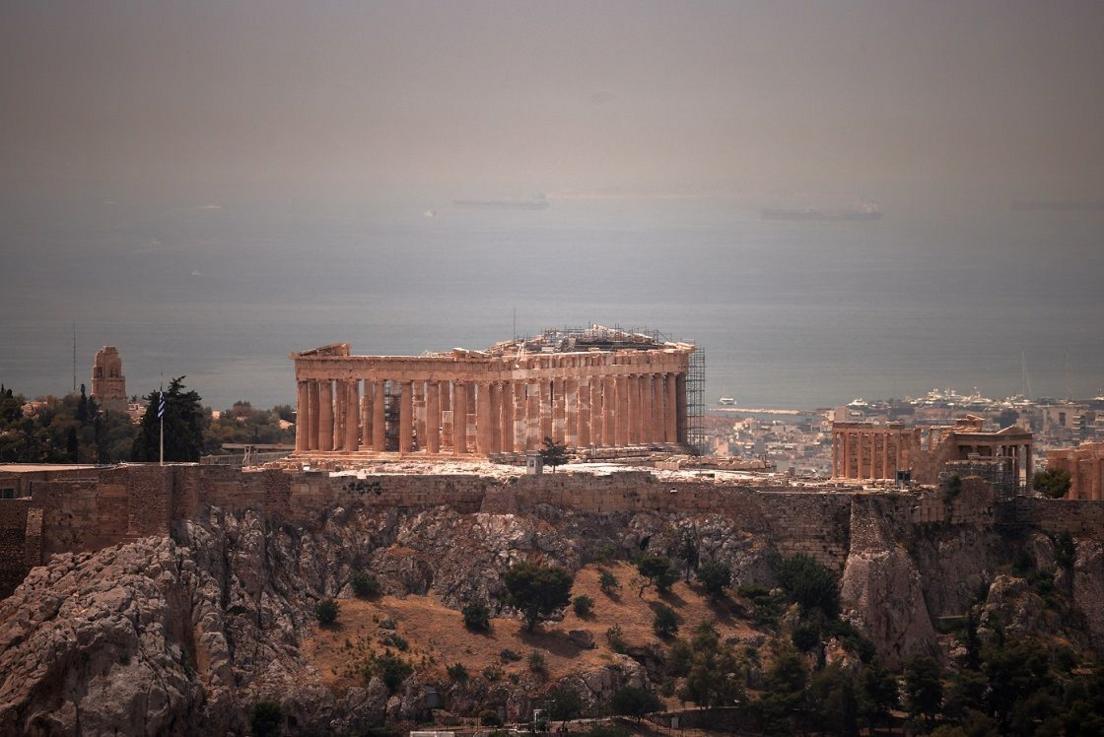
The Acropolis was closed to the public during the heatwave
Although Greece is no stranger to super hot temperatures during the summer, meteorologists say this is the earliest heatwave on record, with winds from North Africa pushing up the temperature.
"This heatwave will go down in history," said meteorologist Panos Giannopoulos on state TV ERT.
"In the 20th century we never had a heatwave before June 19. We have had several in the 21st century, but none before June 15," he said.
In Greece, heatwaves are temperatures which exceed 38C for at least three days.
The increasing frequency of heatwaves has been linked to global warming and climate change, with rising temperatures leading to wildfires and unpredictable weather in recent years.
Athens is known to be one of the hottest cities in Europe and scientists warn summer temperatures there could rise by an average of two degrees by 2050 if action isn't taken.
“Our first goal shall be to lower the median temperature, the felt-air temperature," said Athens mayor Haris Doukas, who has tried to create more shade by planting 2000 trees.
"There are areas where the temperature is 15 or 20 times higher on cement or a city road, compared to a shady area."
Other times Greece has faced very hot temperatures:
- Published24 July 2023

- Published6 August 2021
